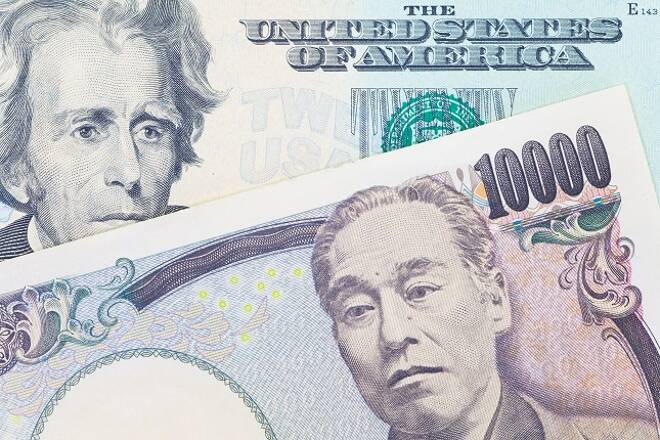Advertisement
Advertisement
USD/JPY Price Forecast – US dollar falls as tariffs levied
Updated: Jun 16, 2018, 07:08 GMT+00:00
The US dollar fell against the Japanese yen during the trading session on Friday after initially trying to rally, as we have seen tariffs levied on the Chinese, and of course the Chinese are getting ready to respond as I record this. At this point, this has a bit of a “risk off” feel to it, and I think that we could go looking towards support below.
The US dollar has bounced initially during the day on Friday, but then pulled back from the ¥110.75 level to wipeout the gains. At this point, I think we are likely to continue to go lower, perhaps reaching down to the 110 year level underneath. That is an area that has previously been resistance, and support. Because of all of that, it’s likely that the market will continue to show selling going into the weekend, and I believe that the headlines over the weekend will have a major effect on how this market goes.
If we break down below the ¥110 level, the market should then go down to the ¥109.50 level. At that point, I would anticipate more support, and if we break down below there, it’s likely that the market will continue to unwind rather drastically, as it would be a major turnaround. It would probably coincide with some type of major escalation in the trade war, or something to that effect. However, I think that the market could turnaround just as quickly, as we have tried to break out due to interest rate differentials. The central banks of each country are in diametrical opposition as to what they are doing, so once things calm down it could go back to an uptrend. There are couple of interest rate hikes coming from the United States this year, while the Bank of Japan is light years away from doing so.
USD/JPY Video 18.06.18
About the Author
Christopher Lewisauthor
Chris is a proprietary trader with more than 20 years of experience across various markets, including currencies, indices and commodities. As a senior analyst at FXEmpire since the website’s early days, he offers readers advanced market perspectives to navigate today’s financial landscape with confidence.
Advertisement
